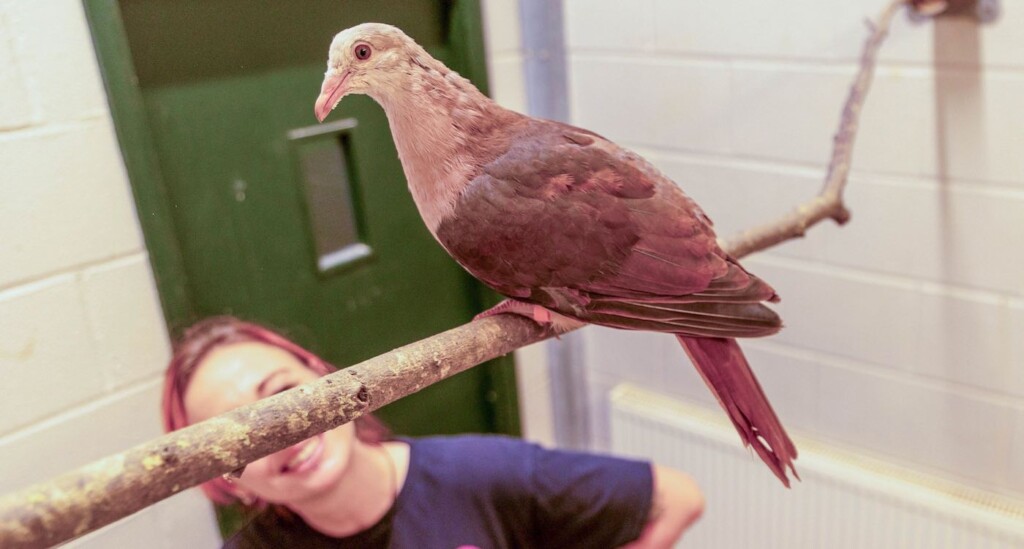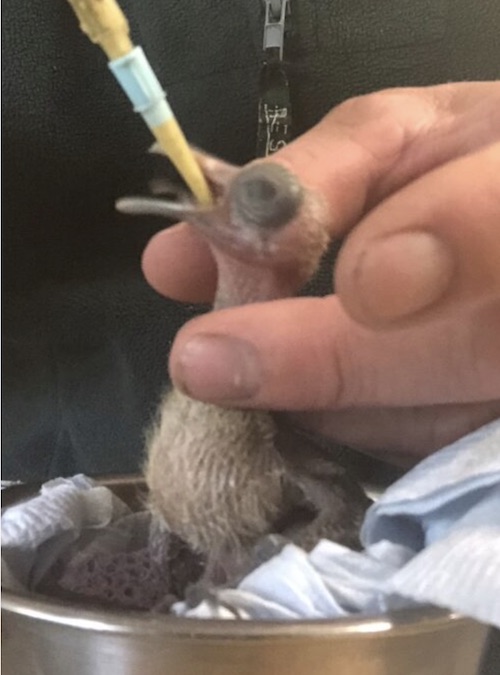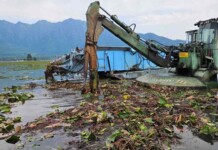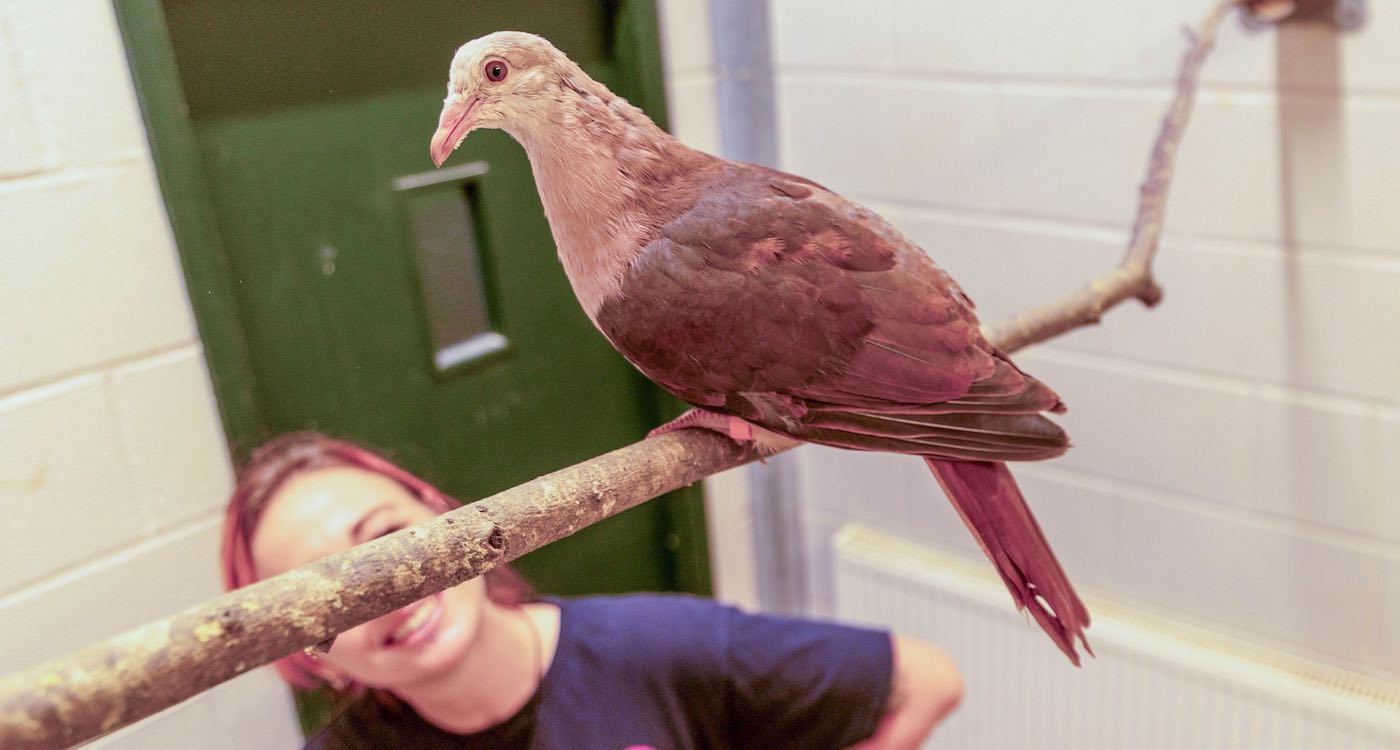
A rare pink pigeon has been hand-reared at a UK zoo for the first time, using an innovative method for feeding baby birds.
Found in the wild only on the island nation of Mauritius in the Indian Ocean, pink pigeons have been on the endangered ‘red list’ for both the IUCN and BirdLife.
On the brink of extinction in 1991, their numbers were thought to have dropped to a low of just nine individuals left in the wild.
But, dedicated conservation efforts have significantly boosted their population—including those from Tom Tooley and his colleagues at Paignton Zoo in Devon, England.
Tom, who has worked as a bird keeper at the zoo for 27 years, developed an innovative technique for hand-rearing the baby birds, known as squabs, if they’re ever abandoned or orphaned by their parents. He has now been teaching the unique hand-rearing method to others.
Instead of using conventional metal crop tubing, he developed a method that involves attaching a carefully-sized catheter to a syringe which can be gently placed on the squab’s tongue so they can eat more naturally.
“This approach allows the squabs to naturally consume the hand-rearing formula, eliminating the need for crop tubing, which can be stressful and harmful to the birds.”

Pink pigeons are part of the European Endangered Species Program, an international breeding program established to maintain healthy captive populations that safeguard genetic diversity. The goal is to ensure the long-term survival of threatened species through collaboration among zoos and organizations, like the Mauritian Wildlife Foundation.
LOOK: Hundreds of Brits Flock to Quiet Backyard After Bird from America Is Blown Off Course by Hurricane
The Foundation is the largest non-governmental organization in Mauritius dedicated exclusively to protecting the nation’s threatened plant and animal species, including the endemic pink pigeon.
In 2014, Tom was invited to assist their conservation efforts for pink pigeons, to train staff in his special hand-rearing technique to increase the chances of pink pigeon squab survival. He has returned a number of times since then and looks forward to jetting off again in early November.
“It’s been a fantastic year for our bird breeding programs,” said Stephen Kings, CEO at Wild Planet Trust.
BIRDING GIFT: These Bird Feeders Have Onboard Cameras That Deliver Close-Ups and Live Streaming of Feathered Friends
“Tom’s skilled approach to hand-rearing this squab, along with the collaborative efforts of our dedicated bird team, is yet another testament to our zoo-based expertise for wildlife conservation.”
Such conservation efforts have boosted the pink pigeon numbers to around 500 individuals as of 2011, which allowed it to fly off the IUCN’s Critically Endangered list and be reclassified as Vulnerable in 2018, which demonstrates how zoos and conservation groups—like Wild Planet Trust, the nonprofit charity of Paignton Zoo—can work together to save a species.
HIGH FLYING KINDNESS: After Building Causes 1,000 Bird Deaths, $1.2M Window Makeover Shows Chicago How to Beak Kind
FLY THE GOOD NEWS Over to Bird Lovers On Social Media…




















